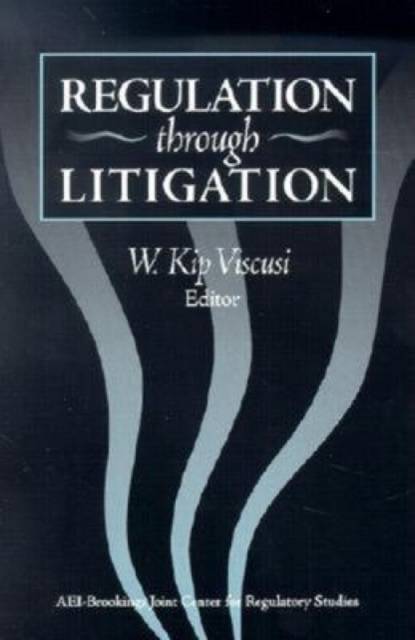
- Afhalen na 1 uur in een winkel met voorraad
- Gratis thuislevering in België vanaf € 30
- Ruim aanbod met 7 miljoen producten
- Afhalen na 1 uur in een winkel met voorraad
- Gratis thuislevering in België vanaf € 30
- Ruim aanbod met 7 miljoen producten
Zoeken
Omschrijving
"A Brookings Institution Press and American Enterprise Institute publication Recent high-profile lawsuits involving cigarettes, guns, breast implants, and other products have created new frictions between litigation and regulation. Increasingly, litigation is being used as a financial lever to force companies to accept negotiated regulatory policies--policies that invariably involve less public input and accountability than those arising from government regulation. The process not only usurps the traditional governmental authority for regulation, but also shifts the locus of establishing tax policy from the legislature to the parties involved in the litigation. Citizen interests are not explicitly represented and there is no mechanism to ensure that these outcomes are in society's best interests. By focusing on case studies involving the tobacco industry, guns, lead paint, breast implants, and health maintenance organizations, the contributors to this volume collectively shed light on the likely consequences of regulation through litigation for insurance markets and society at large. They analyze the ramifications of large-scale lawsuits, mass torts, and class actions for the insurance market, and advocate increased public scrutiny of attorney reimbursement and a competitive bidding process for all lawsuits involving government entities as the plaintiffs. "
Specificaties
Betrokkenen
- Auteur(s):
- Uitgeverij:
Inhoud
- Aantal bladzijden:
- 382
- Taal:
- Engels
Eigenschappen
- Productcode (EAN):
- 9780815706090
- Verschijningsdatum:
- 24/07/2002
- Uitvoering:
- Paperback
- Formaat:
- Trade paperback (VS)
- Afmetingen:
- 156 mm x 229 mm
- Gewicht:
- 512 g

Alleen bij Standaard Boekhandel
+ 98 punten op je klantenkaart van Standaard Boekhandel
Beoordelingen
We publiceren alleen reviews die voldoen aan de voorwaarden voor reviews. Bekijk onze voorwaarden voor reviews.











